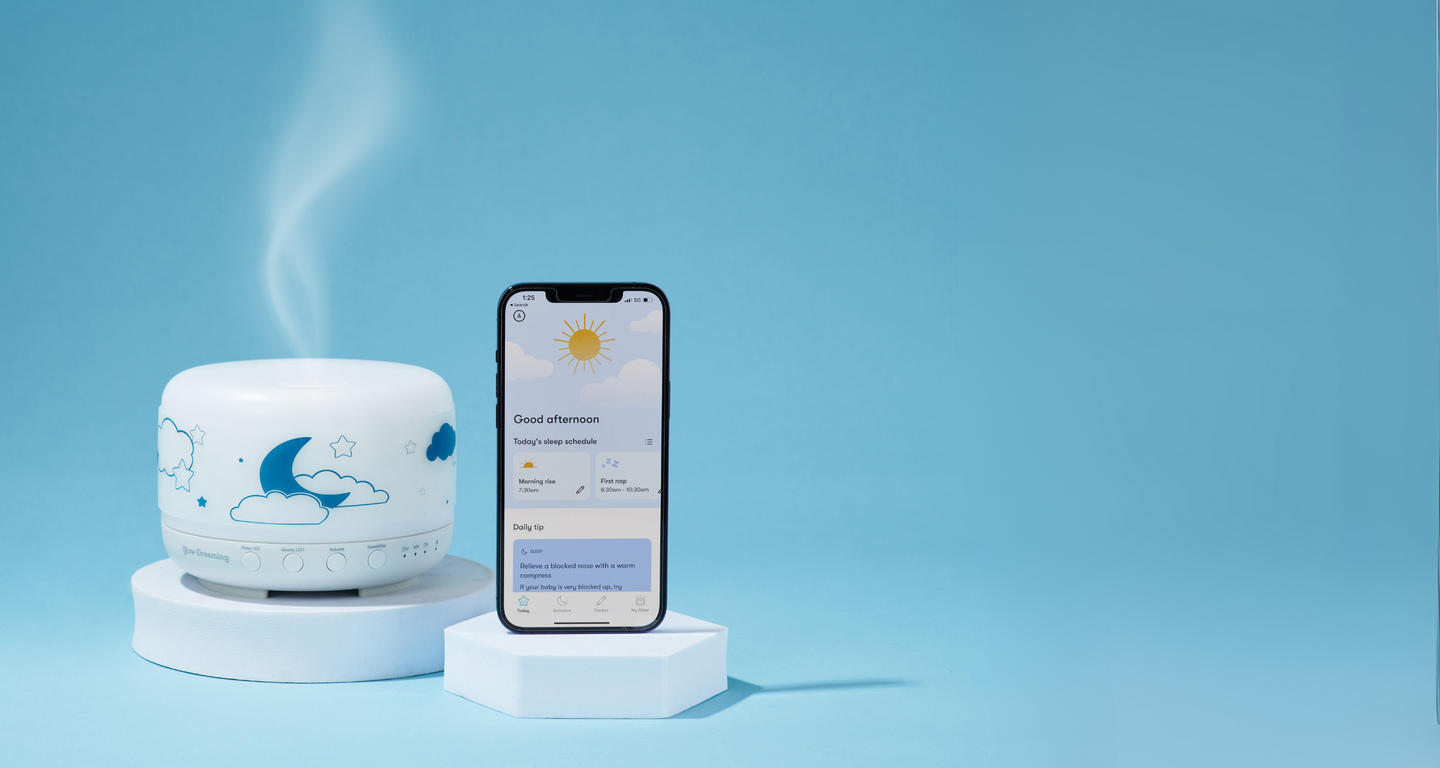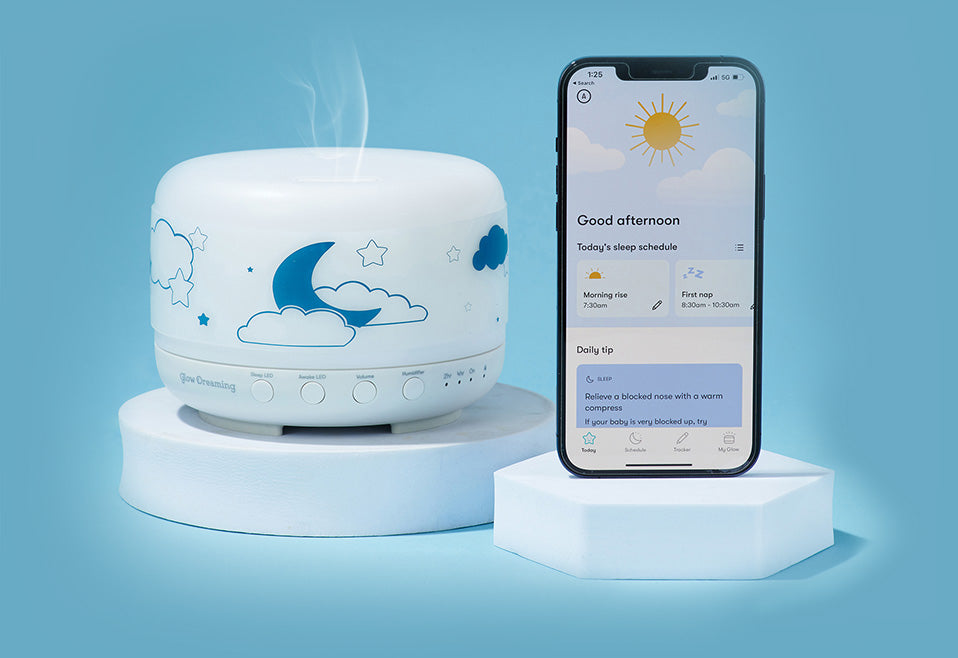Generally speaking, babies snore (newborns and older children) because their breathing airways are still narrow and small. However, it is important to remember that there could be a more serious reason as to why, and if you feel this is the case, please seek the advice of your medical professional.
You may find that your child or newborn's snoring not only impacts their sleep, but yours as well. We have a solution that not only solves the snoring, but also the sleeping problem too.
Babies are likely to have some kind of build-up of mucus, the reason for this is that it acts as a sort of barrier for any nasties, so it is an extra line of defence! This is most commonly why newborns and older babies snore.
As a result of this build-up and your baby's breathing, they may make noises usually described as snuffling, snoring, or whistling.
Snoring in babies can usually be addressed by the right snoring solution. When your baby has a cold, that is more likely to lead to snoring. This is also the case when they have allergies or swollen tonsils or adenoids.
In general, the issue is likely to resolve itself.
If your baby has been snoring for 4 or more nights within the week, we recommend that you do see your GP or Pediatrician for further assessment.
Can you stop your baby's snoring?
Yes.
Is the answer you're looking for here?
Yes.
Humidifying the Air & Allergen Control
Before putting your baby to sleep, you can give them a warm bath or shower. The humidified air will help ease and loosen nasal secretions so that your baby can sleep more comfortably.
Your baby may also snore when they have allergies, a cold, or other respiratory conditions. Make sure that you keep the surroundings free from dust, pet dander, and other allergens that may trigger such problems.
Keep your baby’s room clean and well-ventilated.
A humidifier helps to sustain a level of humidity that promotes ease of breathing. It is not a treatment for snoring but it helps your baby breathe and sleep more soundly, things like central heating tend to dry out the air so this can be a great addition to help your child sleep.
Hosing
If your pediatrician approves, you can hose your infant’s nose to help them breathe more easily. Salty nasal sprays are available in most pharmacies. Squirt two or three drops of the saline solution - or as directed - once a day into your baby’s nose. The solution will help clear their nasal passages and ease breathing. You can also gently suction excess secretions by using a nasal aspirator.
Changing Your Infant’s Sleeping Position
Your baby’s sleeping posture may trigger snoring. Research shows that a baby who sleeps on their stomach are more likely to snore compared to a baby who sleeps on their side. The latter usually sleep more quietly.
Please remember that it is better not to encourage your newborn to sleep on their stomach. They may find it difficult to turn their head to breathe when they assume this sleeping position. New studies indicate that the best thing to do is to have your baby lie on their back AND tilt their head to the side. This position will decrease the prospect of airway constriction. You can alternate tilts to the right and left sides.
When to seek additional help
If your child snores 4 nights of the week or more, they mouth breathe, or grind their teeth, these are usually always symptoms that we suggest you take your child to see your GP or specialist.
They should do a comprehensive assessment on the airways to look for any obstructions or structural issues - where obstruction exists, treatment needs to be expedient to have the best outcome for the child.
If there are structural problems behind your baby’s snoring, your GP or Paediatrician will refer you to an Ear, Nose, and Throat Specialist who can then determine if your baby needs further evaluation or treatment.
How the Glow Sleep Easy Helps Support Clear Breathing:
-
Humidifier for Moist Air:
- The Glow Sleep Easy’s ultrasonic humidifier helps maintain optimal humidity levels in your baby’s room, which moistens their nasal passages.
- This moisture helps to loosen mucus, making it easier for your baby to breathe through the night, reducing snoring and snuffling.
- Especially beneficial during colder months when central heating dries out the air, which can worsen snoring.
-
Aromatherapy for Relaxation:
- Using safe, child-friendly essential oils like the Glow Dreaming Essential Oils range with the humidifier can further support clear airways and relaxation.
- Essential oils like our 'Breathe Easy' essential Oil helps to soothe the respiratory system and break down mucus, providing added relief from snoring.
-
Red LED Light Therapy:
- The Red LED light therapy feature of the Glow Sleep Easy can help calm and settle your baby before sleep, promoting deeper and more restful sleep.
- While not directly addressing snoring, a calm and relaxed baby is less likely to experience disrupted sleep.


